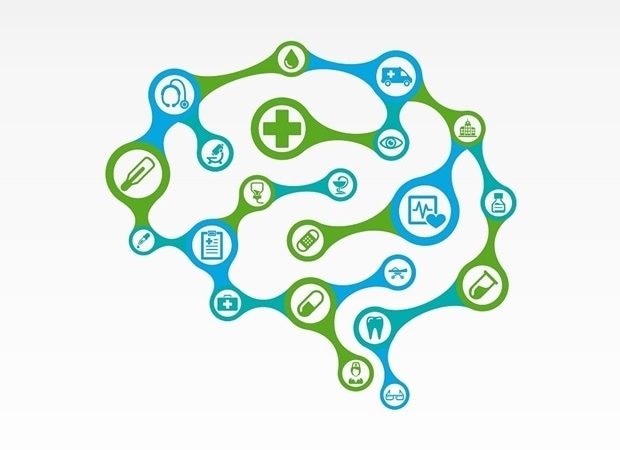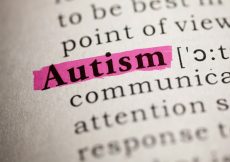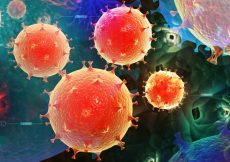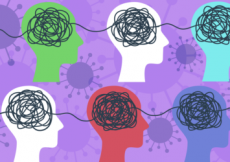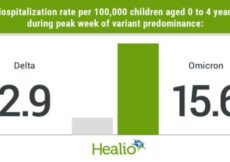For transgender people, starting gender-affirming hormone treatment in adolescence is linked to better mental health than waiting until adulthood, according to new research led by the Stanford University School of Medicine.
The study, which appeared online Jan. 12 in PLOS ONE, drew on data from the largest-ever survey of U.S. transgender adults, a group of more than 27,000 people who responded in 2015. The new study found that transgender people who began hormone treatment in adolescence had fewer thoughts of suicide, were less likely to experience major mental health disorders and had fewer problems with substance abuse than those who started hormones in adulthood. The study also documented better mental health among those who received hormones at any age than those who desired but never received the treatment.
Gender-affirming hormone treatment with estrogen or testosterone can help bring a transgender person’s physical characteristics in line with their gender identity. In adolescence, hormone therapy can enable a transgender teenager to go through puberty in a way that matches their gender identity.
This study is particularly relevant now because many state legislatures are introducing bills that would outlaw this kind of care for transgender youth. We are adding to the evidence base that shows why gender-affirming care is beneficial from a mental health perspective.”
Jack Turban, MD, postdoctoral scholar in pediatric and adolescent psychiatry at Stanford Medicine
Turban is the study’s lead author. The senior author is Alex Keuroghlian, MD, associate professor of psychiatry at Harvard Medical School and director of the National LGBTQIA+ Health Education Center at the Fenway Institute.
Largest survey of transgender adults
The researchers analyzed data from the 2015 U.S. Transgender Survey, which comprises survey responses from 27,715 transgender people nationwide. Participants, who were at least 18 when they were surveyed, completed extensive questionnaires about their lives.
Because some transgender people do not want hormone treatment, the study focused on 21,598 participants who had reported that they wanted to receive hormones. Results were analyzed based on when participants began hormone therapy: 119 began at age 14 or 15 (early adolescence), 362 began at age 16 or 17 (late adolescence), 12,257 began after their 18th birthday (adulthood), and 8,860 participants, who served as the control group, wanted but never received hormone therapy.
The participants answered several questions about their mental health, including their history of suicidal thoughts and suicide attempts, and their history of binge drinking and illicit drug use. They completed a questionnaire to assess whether they had experienced severe psychological distress, meaning they met criteria for a diagnosable mental illness, within the prior month.
The analysis was controlled for several factors that could influence participants’ mental health independently of whether they received hormone treatment: age at the time of the survey; gender identity; sex assigned at birth; sexual orientation; race or ethnicity; level of family support for gender identity; relationship status; level of education; employment status; household income; use of pubertal suppression treatment; any attempts to force them to be cisgender; and experience of any verbal, physical or sexual harassment based on their gender identity in grades K-12.
Compared with members of the control group, participants who underwent hormone treatment had lower odds of experiencing severe psychological distress during the previous month and lower odds of suicidal ideation in the previous year. Odds of severe psychological distress were reduced by 222%, 153% and 81% for those who began hormones in early adolescence, late adolescence and adulthood, respectively. Odds of previous-year suicidal ideation were 135% lower in people who began hormones in early adolescence, 62% lower in those who began in late adolescence and 21% lower in those who began as adults, compared with the control group.
In addition, participants who began hormones in early or late adolescence had lower odds of past-month binge drinking and lifetime illicit drug use than those who began hormones in adulthood.
But the researchers found that those who started hormone treatment in adulthood were more likely to engage in binge drinking and use of illicit substances than those who never accessed the treatment. “Some individuals may become more confident and socially engaged when they begin taking hormones,” Turban said, adding that, in some cases, this increased confidence and social engagement may be linked to substance use. “This finding speaks to the importance of creating culturally tailored substance-use counseling programs for transgender individuals.”
To get a sense of whether participants’ mental health before treatment influenced their ability to gain access to treatment, the researchers also assessed whether participants in each group had ever been suicidal but had not had suicidal feelings in the previous year.
“This was a measure of mental health improving over time,” Turban said. “People were more likely to meet those criteria if they accessed and took hormones than if they hadn’t.” The finding implies that access to hormones improved mental health rather than the other way around, he said.
Building evidence for gender-affirming medical care
Turban and his colleagues hope legislators across the country will use the new findings to inform their policy decisions. Although several bills to ban gender-affirming medical care for transgender youth have been introduced in state legislatures in recent years, nearly all have failed to become law, he said, adding that all major medical organizations support provision of gender-affirming medical care, including hormone therapy for patients who desire it and who meet criteria set out by the Endocrine Society and the World Professional Association for Transgender Health.
“There’s no one correct way to be transgender,” Turban said. Some transgender people do not want to take hormones and feel comfortable with their bodies the way they are. Young people seeking care at gender clinics are routinely offered counseling as part of their treatment to help them figure out what types of care best fit their circumstances.
For those who desire gender-affirming hormones, being denied access to the treatment can cause significant distress, Turban said.
“For some transgender youth, their negative reactions to living in bodies that develop during puberty in ways that don’t match who they know themselves to be can be very damaging,” he said. For instance, individuals who feel uncomfortable developing breasts may react by binding their chests so tightly they develop skin infections or rib fractures.
“These results won’t be surprising to providers, but unfortunately a lot of legislators have never met any transgender youth,” Turban said. “It’s important for legislators to see the numbers that back up the experiences of transgender youth, their families and the people who work in this field.”

